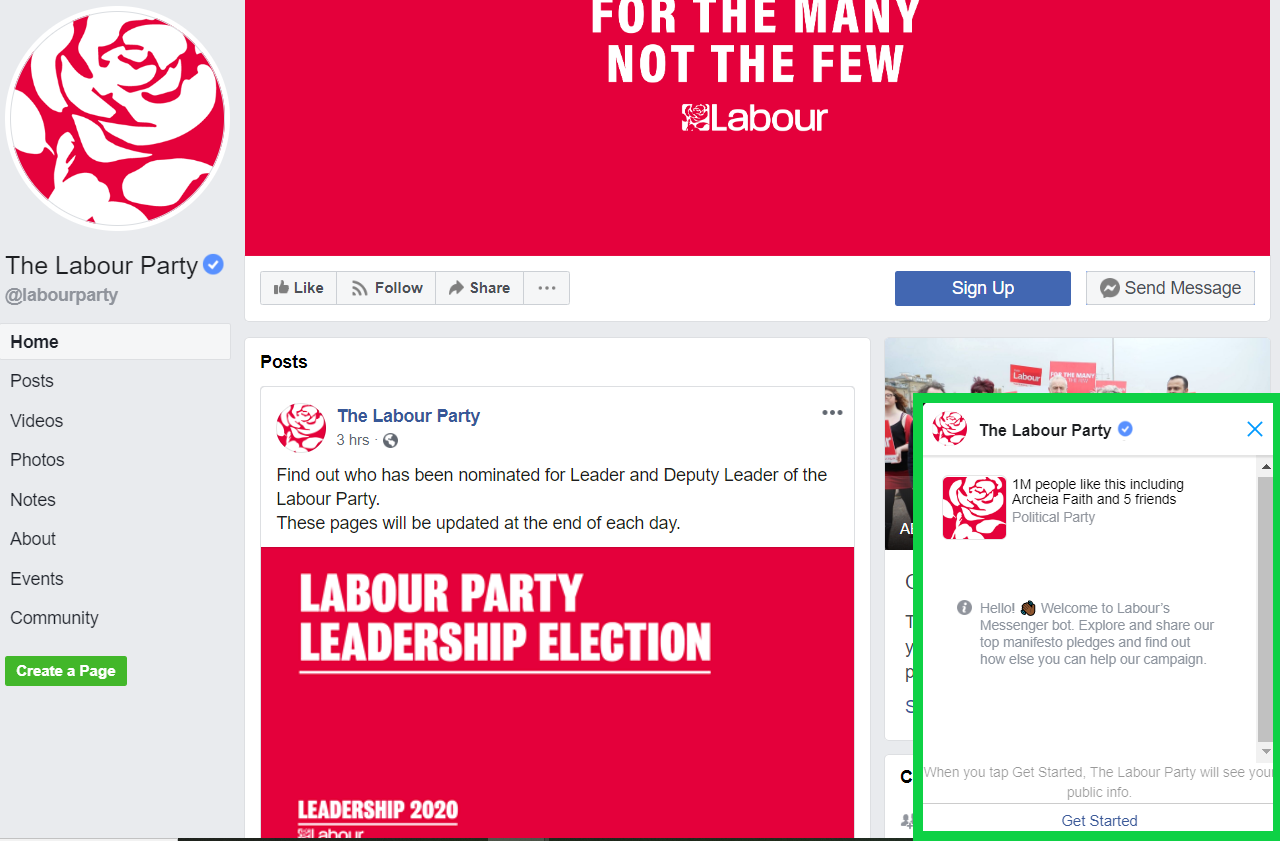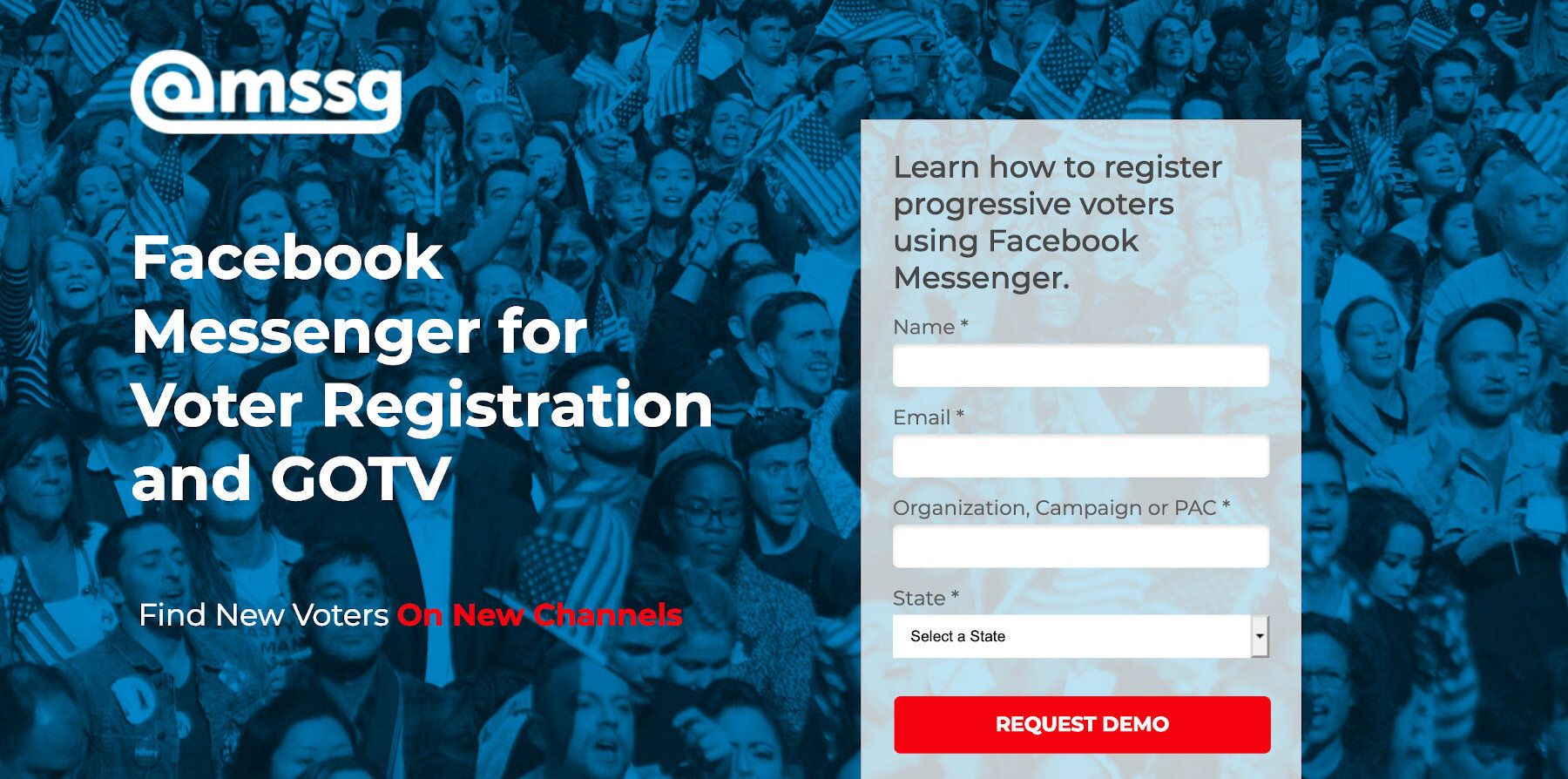How political campaigns can effectively use chatbots and AI
Successful politics is all about marketing.
Amazon dispatches goods, services, and communications to the market via multiple channels and in return, consumers pay money, provide information and offer their loyalty. Political campaigns are hardly different. A candidate will dispatch promises, preferences and their personality to the voters in exchange for their votes and contributions to the campaign effort.
As the digital world grows exponentially with little sign of slowing down, political campaigns need to keep up with their voters in the same way that Amazon has kept up with their buyers. Amazon uses artificial intelligence (AI) powered recommendations, Prime add-ons and new delivery options (including drones) to stay ahead of their competitors and the best political campaigns must embrace that same aggressive outreach mindset. Some of the same emerging technology innovations that are rapidly transforming business are likely to change the face of political campaigns if deployed effectively – for-profit marketing often leads the way in developing tools that are then seized on by political campaigns.
Using Political Chatbots
The chatbot has come under scrutiny when it comes to political campaigning. These are artificial personas that use complex algorithms to mimic human behavior and intelligence (in some cases at least). On a large scale, chatbots have been used to automate propaganda on social media, leading to bad press for the technology. These bots are also becoming so smart that recognizing them as AI bots is increasingly difficult. Research showed that one-fifth of Tweets about the 2016 Presidential election were from bots and with how much AI has progressed over the last few years, this number will likely be much higher in 2020.
However, we need to be careful not to reduce chatbots and AI to glorified malware. On a smaller scale, they can be beneficial for reaching out to constituents and engaging with them while learning more about who your voters are. Bots should appeal to political campaigners, whether on a national or local level, for a series of reasons.
Why use bots?
A key driver to the popularity of bots was when Facebook opened up its Messenger platform to developers back in 2016. This decision meant people could leverage Facebook’s vast store of data to reach a vast network of customers or voters without the need for costly SMS, email or face to face visits. In the UK, the Labour Party has deployed a Facebook Messenger bot for potential voters to find out more information on their party platform.
Bot highlighted by green box
There are a few key things to note from this screenshot. First, it allows the voter to engage with the party by asking questions about their policies, easily navigating through a deluge of details they have been fed into the machine learning algorithm already. Second, note the message at the bottom of the chatbot which reads;
“When you tap Get Started, The Labour Party will see your public info.”
The small and ambiguous message is telling us that if we interact with the bot, it will be able to see our Facebook profile. Within that profile is personal data that could be pivotal to a political campaign. As well as age, gender, location and likes, it could show any images that are public and allow the campaigner to gather vital information about their voters.
Suddenly, the political campaign gets an instant database of what their voters tend to like and dislike and the sort of questions they are asking. This data is fed into algorithms driving the next set of advertising or even to help shape policy decisions and the method of persuasion
The entire campaign can be advised and supported by AI. Supporters will talk to the chatbot which gathers data. Machine learning algorithms will take that data and analyze the patterns. The patterns are then used by the communications team to decide on the type of content and the sequencing to be used for the next advertising campaign. Specific voters can be targeted with tailor-made messages leading to superior results. If successful, this effort could deliver the next generation of micro-targeted voter outreach in a significantly cheaper form.
Next Generation Chatbots
Consumers are demanding more human-like technology after the success of Amazon Alexa and Google Home and governments are getting in on the game with efforts such as Microsoft’s Citizenbot in the UK; there is no reason why political campaigns should be any different. If a bot is knowledgeable about the position of a candidate and their demeanor, a virtual conversation might be able to allow voters to ask questions specific to their community and get targeted answers back.
Researchers at MIT Lab are attempting to build political chatbots that can respond just like their human counterparts. The MIT research effort aims to see if our digital footprint gives away enough about how we behave for a bot to provide a convincing emulation of us. A successful implementation might allow political campaigns to influence opinion and generate more excitement among people whom they believe to be a likely supporter, though such research also fills many people with concerns.
Case Study - @mssg
A bot created by @mssg via Facebook Messenger in 2016 on behalf of three political groups set up a political campaign to vote Sheriff Joe Arpaio out of office. He has been accused of discriminatory practices. The bot asked for the voter’s address and then returned the relevant voting location. The sheer novelty factor and mobile-friendly convenience of the bot meant it was a great success and examples such as this have led today’s larger political campaigns to take advantage of the technology, automating responses to comments on posts with donation messages, questions, and other content. Image Credit: Our Data, Our Selves
The future: Will bots tell campaigners and candidates what to do?
We’re seeing that using AI and chatbot technology is a great way to better engage with voters and understand who they are through data. However, as AI is becoming more involved with what people see online and social media channels step up efforts to weed out fake news, is there potential to cut out the middleman?
AI is already using data to present people with what they want to see through machine-learning powered algorithms across the internet. If political campaigns are using the wealth of available data to work out our likely preferences, then will there come a time where we don’t need politicians? In fact, would the public be better off served voting for the AI algorithms that officials should follow rather than the candidate themselves? Ultimately, it is unlikely an algorithm cannot put the same spin on policy that a candidate can, but the theory is certainly interesting. AI is at its best when it provides analysis and suggestions that humans can then use to make decisions. That said, I’m certain that someone is already planning to run on the premise that they would use an algorithm to make their decisions, just as some are espousing blockchain-powered voting to guide political decisions.
Ultimately, what we do know is that just as political campaigns have taken advantage of other marketing innovations, politicians and government officials today must use new methods to more effectively keep up with their constituents. With the world continuing to flock online, using chatbots and AI to your advantage in political campaigns should be a priority and not simply an option.

